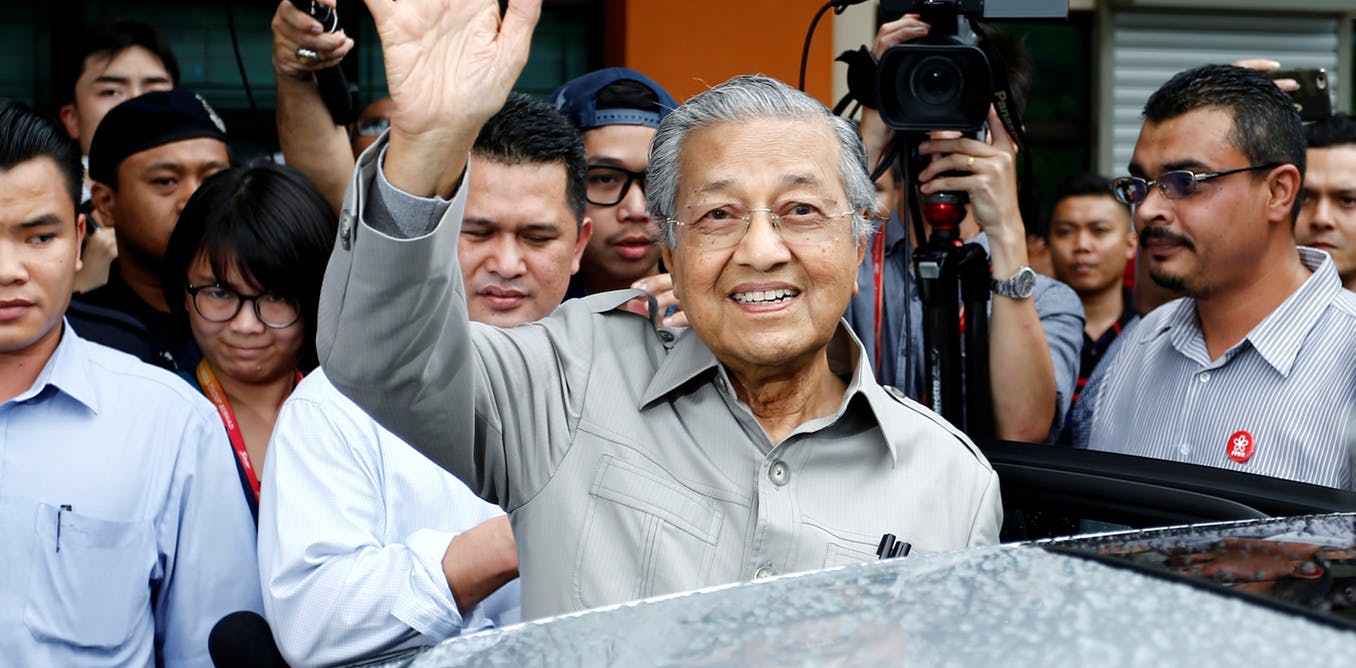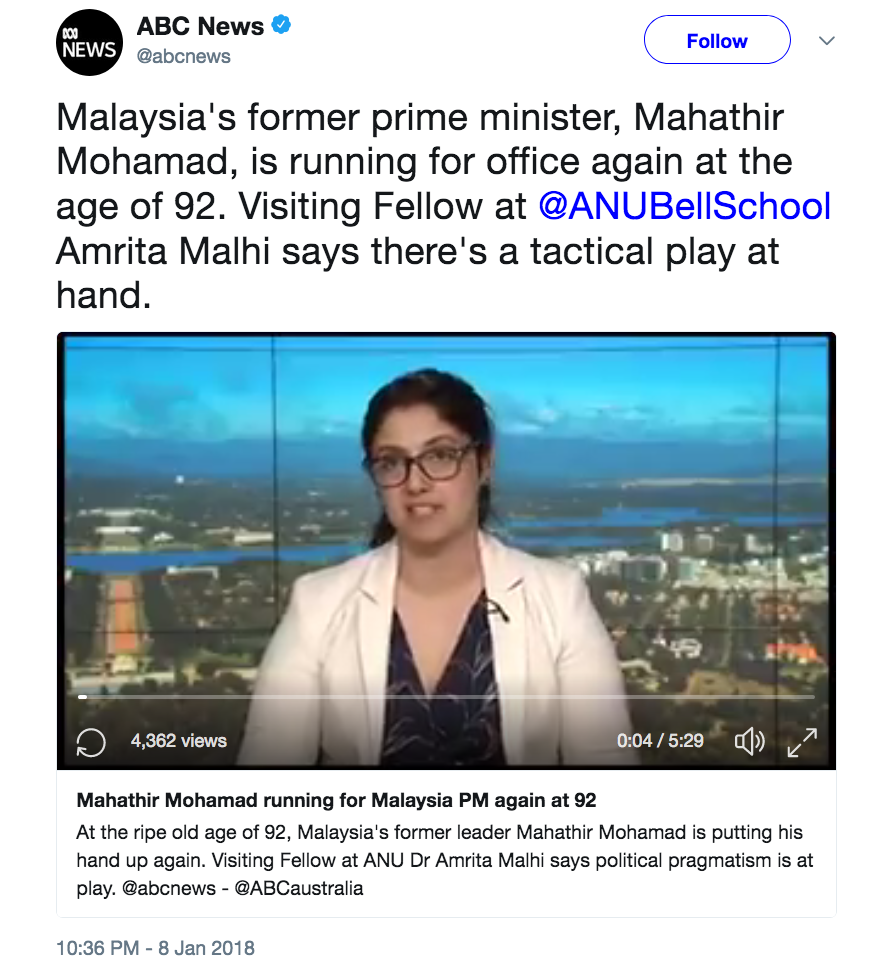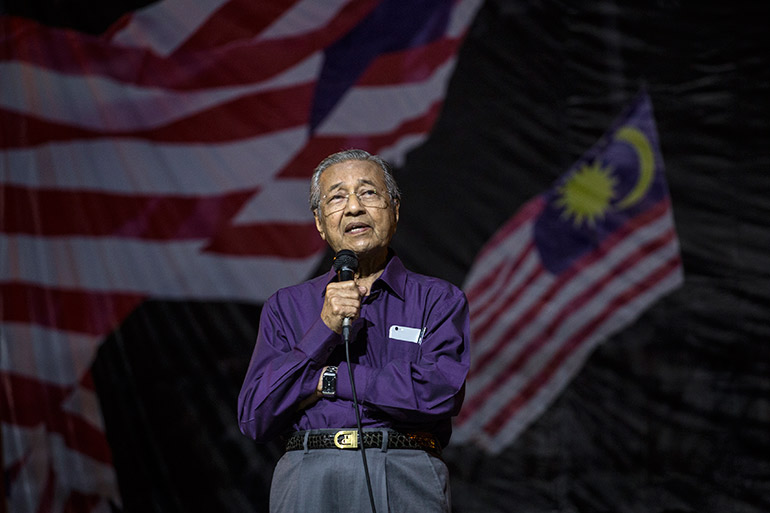At 92, former Malaysian prime minister Mahathir Mohamad is again vying for the country’s top job. Photo: Reuters, Lai Seng Sin
The Conversation has published an op-ed I wrote discussing the unprecedented political development of Mahathir Mohamad becoming leader of the coalition of opposition parties against Najib Razak. Mahathir’s rise to leadership puts him on the same side as his former political enemy, Anwar Ibrahim, who is currently serving a jail term and will likely seek a royal pardon in June to readmit himself to political life.
This is an abridged version of a longer piece published by Inside Story.
Mahathir Mohamad crops up again in bid to lead Malaysia – with Anwar on the same side
“On January 8, former Malaysian prime minister Mahathir Mohamad announced his intention to contest the next general election, due sometime before August this year.
In an unprecedented political turnaround, Mahathir is now leader of the alliance of opposition parties bidding to oust the incumbent, Najib Razak. Mahathir handpicked Najib in 2009 to head his former party, the United Malays National Organisation (UMNO), and the coalition it has led since the 1970s, Barisan Nasional.
To add further intrigue, Mahathir now appears to be on a unity ticket with his old enemy, Anwar Ibrahim, for control of the country.
Mahathir, who first rose through UMNO ranks to become prime minister in 1981, is 92. His decision to stand again has raised questions about the state of politics in this young nation, whose median age is 28. Malaysian and international media outlets alike have carried comments along the lines that nominating somebody so old is a “laughable” choice.
Yet the key to this decision is not in the nation’s age profile but the calculus of building electoral coalitions in a diverse nation bearing the scars of political battles fought since 1998.
Read more









